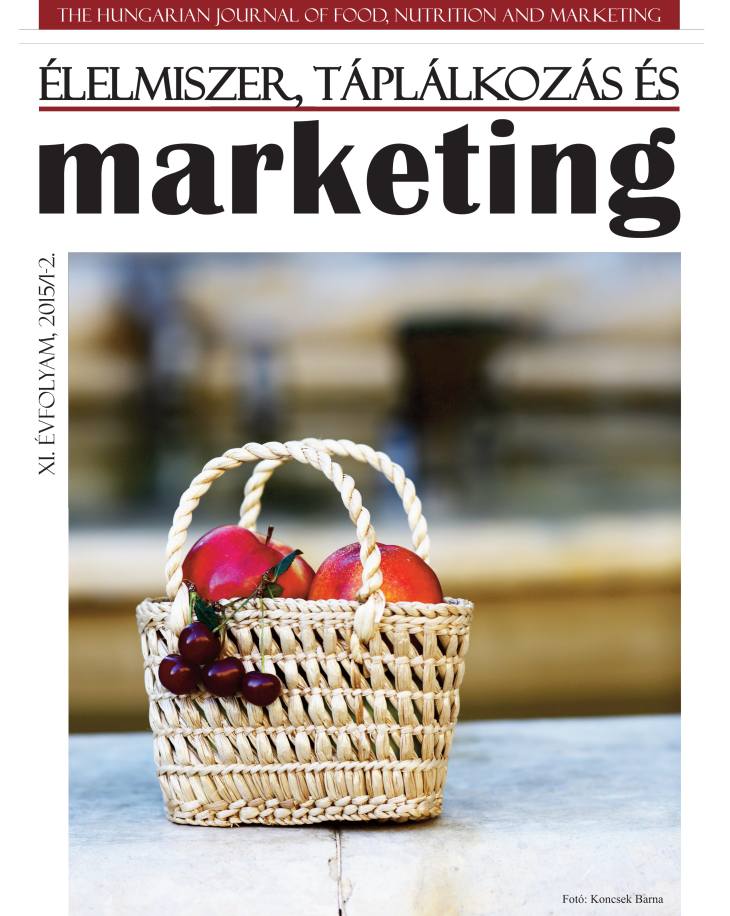Az egészségtudatosság a győri középiskolások körében – megközelítés az élelmiszer-fogyasztás oldaláról
Absztrakt
The issue of healthy and conscious consumption is an extraordinarily current and trendy topic, as one of the dominant megatrends in our days is growing health consciousness and health market extension. Eating culture and habits are one of the earliest evolved attitudes, in which the family play an important role beside the personal motivations , but the national habits and contemporary group factors are determinant as well. The forming of eating habits and tastes are especially overestimated in childhood. At this age it should affect the wrong eating habits, and it is necessary, „to transform the knowledge” (an example from nowadays is the canteen reform) children get acquainted with, since this could help significantly decrease medical care that appears in adulthood due to nutritional problems. The research used a sample of 250 secondary school students at the age of 14-20 to find out what their food – consumption habits were. We were looking for answers for the question whether it could increase health awareness. Unfortunately the social differences appear very much in the eating habits of families as well. The children of those families who live in specifically good financial circumstances, did not think about unhealthy eating in their families. It can be concluded that the dietary references do not reach our children! The question is how much the public advertisements worth (those marketing communication tools that want to „push” our children towards the direction of healthy eating) if they are „not conscious” of our children.



